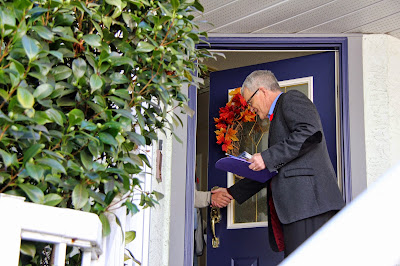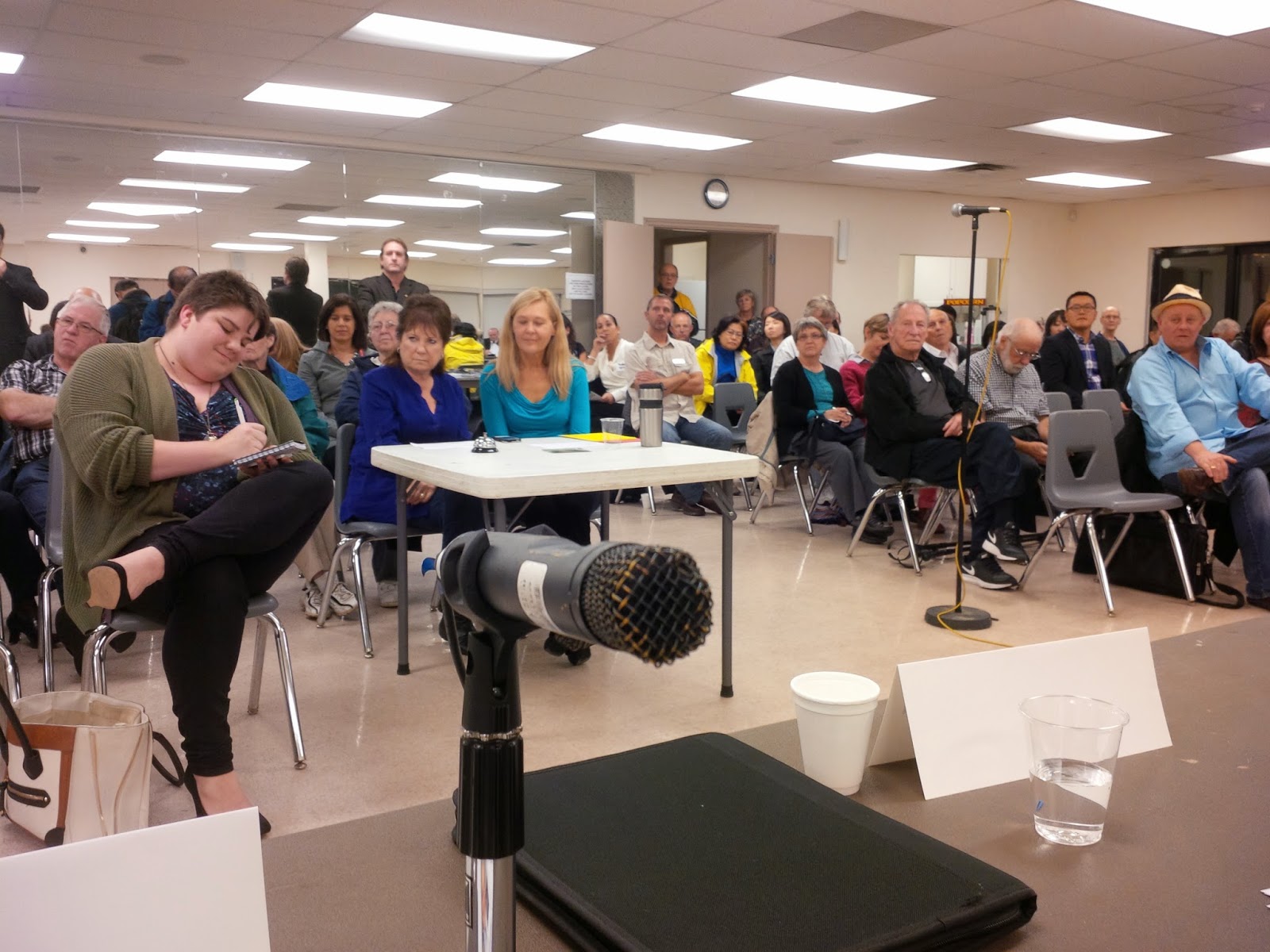Opening Comments
 |
| Graphic from news1130.com |
The committee may recall that in January, 2014, I submitted
a brief on the question of campaign-expense limits. With the new call for submissions on the
subject, the deadline for which is December 5, 2014, I feel compelled to
restate my opinion on the subject, which I will do today.
As well, I will add
to it in response to the increasing calls to ban corporate and union
donations. In short, I oppose expense
limits and I oppose banning corporate and union donations.
First, though, let me state that, If there are to be new
campaign-expense rules, I believe that the
Province should set expense limits and that Elections BC should enforce
the limits. This body is already involved in election monitoring; enforcing campaign-expenditure rules would be
a natural extension of its current work.
Furthermore, if expense limits are enacted, they should apply
in school-board elections. It’s only
fair to have them applied to the election of trustees as well as mayors and
councillors.
As well, population size should be taken into account in
setting expense limits. Moreover, if
there are to be limits, they must take into account not only the population of
the jurisdiction, but also the physical size.
A candidate running for office in a town of 10,000 that is
concentrated into one square kilometre would likely have an easier time
reaching voters during a campaign than a candidate in a community of 10,000
that is spread over a 100-square-kilometre area. The former might be able to
easily hand-deliver flyers, for example, while the latter might have to employ
a more expensive delivery method, such as Canada Post.
Finally, if there are to be expense limits, they should
apply not only to candidates, but also elector organizations and third-party
advertisers. If there is to be a new
regulatory system, then it seems fair to have it applied to all aforementioned
groups.
A question of free
speech
Irrespective of the above, I actually oppose the concept of
campaign-expense limits. I believe such
restrictions would infringe on fundamental freedoms as found in the Canadian
Charter of Rights and Freedoms, Section 2. I quote:
“Everyone has the following fundamental freedoms:
- freedom
of conscience and religion;
- freedom
of thought, belief, opinion and expression, including freedom of the press
and other media of communication;
- freedom
of peaceful assembly; and
- freedom
of association.”
Specifically, I believe that any restriction on campaign
spending would be a direct attack on Section 2.2, “freedom of thought, belief,
opinion and expression, including freedom of the press and other media communication.”
Allow me to explain:
Since the major part of one’s campaign involves communicating with the
electorate, and since such communication involves the transmission of thoughts,
beliefs, opinions and expressions through the press and other forms of communication
such as flyers and posters, a restriction on campaign spending would have the
effect of restricting the “fundamental right” of an individual to engage in
that communication.
I understand that “reasonable restrictions” to Charter
rights have been enacted, but I do not believe that something (an election
campaign) that involves two such fundamental aspects of our democracy – free
elections and free speech – should face the sort of restrictions being
considered in the current exercise.
If a citizen decides to spend her life savings on an
advertising campaign to support a civic cause or oppose a candidate, then let
it be. If a candidate feels that being elected is so vital that he must take
out a second mortgage to pay for a massive advertising campaign, then so be it.
What’s important in both cases is that these people have the full and
unfettered right to participate in democracy.
Practical objection to spending limits
Here, my objection to campaign-spending limits comprises
related issues: unfair obstacles that such limits put in the way of new
candidates; unfair obstacles that such limits put in the way of lone or
unaffiliated candidates.
First, the new candidate. It’s a given that name recognition plays a
large role in all politics, but it is an especially significant factor at the
municipal level. For the new candidate, the biggest challenge is not only
getting his or her platform in front of voters; it’s also—and, arguably, more
importantly—getting his or her name known. Either way, one sure-fire way
of presenting oneself to voters is to spend money on advertising, signage and
other promotional devices. It’s less important for incumbents to “put their
name out there” because they are already relatively well-known.
But campaign-spending limits would fetter a new candidate’s
ability to spend freely to have his or her name become as well-known as an
incumbent’s. Therefore, I submit that campaign-spending limits would have the
unintended consequence of diminishing the opportunity for electoral success for
newcomers, while favouring incumbents.
Second, the lone or
non-affiliated candidate. Consider the situation facing the lone,
non-affiliated candidate who is running against a candidate or candidates from
a well-organized campaign slate, party or endorsement mechanism. In all likelihood, that lone candidate does
not have an “election machine” supporting his or her candidacy—no supporter
lists to work from, and no election-day teams to “get out the vote,” for
example.
What such a lone candidate would have the ability to do,
however, is to match or even exceed the campaign spending of his or her rivals.
But if that spending were limited by force of law, that lone candidate would
face an unfair restriction on one of the only ways by which he or she might be
able to achieve a level playing field.
We need to look deeper into the mechanics of a
well-organized party, slate or endorsement body to truly appreciate the
advantage they would be given over independent candidates should
campaign-spending limits be put in place. Such bodies can attract many
volunteers and often have extensive lists of possible supporters for those
volunteers to call by phone, contact by email, or send letters to. With voter
turnout for municipal elections being relatively low, these well-organized
campaigns give their candidates a very tangible edge over any independent
candidate.
This situation is both legal and fair under the current
system because non-affiliated candidates always have the option to counter the
“election machine” they are facing by spending more money on advertisements,
automatic phone calls, and the like.
That leveler disappears in a universe of campaign-spending
limits, however. Such limits would not likely place any limit on the number of
volunteers working for parties, slates or endorsement bodies, nor would they
place any limit on the amount of hours those volunteers could work. But they
would limit the opportunities for non-affiliated candidates to level the field
by spending extra funds to buy advertising and otherwise promote their
candidacy.
In conclusion, I would argue that a campaign-expense limit
would have the unintended consequence of handicapping both new and lone,
independent or non-affiliated candidates, while inadvertently giving incumbents
and slate- or party-backed candidates an advantage.
Therefore, practically speaking, campaign-expense
limitations would be unfair.
Donation sources
I understand that many individuals and organizations are
calling for a ban on all corporate and union donations. I do not support this call
for reasons that echo some of my positions, above. I believe that the banning
of such donations would have the effect of hamstringing lone, independent or
new candidates. This is because those organizations or incumbents that have
extensive lists of committed supporters and volunteers would have a big head
start when seeking donations, as they would be able to immediately tap into an
already-existing database of likely individual donors.
On the other hand, the new candidate or the lone,
independent one would have no such existing database and would be severely
handicapped in his or her fundraising efforts.
I believe that there would be less concern over corporate
and union donations if voters were given full and timely information about the
source of all campaign donations. On this subject, at present, campaign-donation
documents need not be filed until several months after the campaign has ended.
I believe that the Provincial Government should examine the feasibility of
establishing a real-time, campaign-donation-reporting mechanism to enable
voters to have access to information on the source of a candidate’s funds before they
cast their ballots, not after.
One other idea that might be considered is to place special
limits or reporting requirements on candidates who receive donations from
corporations or unions with which the candidates’ city has a direct and ongoing
contractual/financial relationship. I am thinking here of companies such as
private garbage-collection services, and unions such as those that represent
city workers.
I personally will not accept donations from such organizations
because of the appearance of conflicted loyalties or interests. On the other
hand, I have no difficulty accepting a donation from a corporate citizen that,
like my neighbor, does business from time to time in the city, or even does
business on a continual basis. As long
as there is not a direct and ongoing contractual/financial relationship, this
is acceptable.
In Conclusion
Thank you for the opportunity to present this advice. These
are important issues and deserve careful consideration.



















.svg.png)




